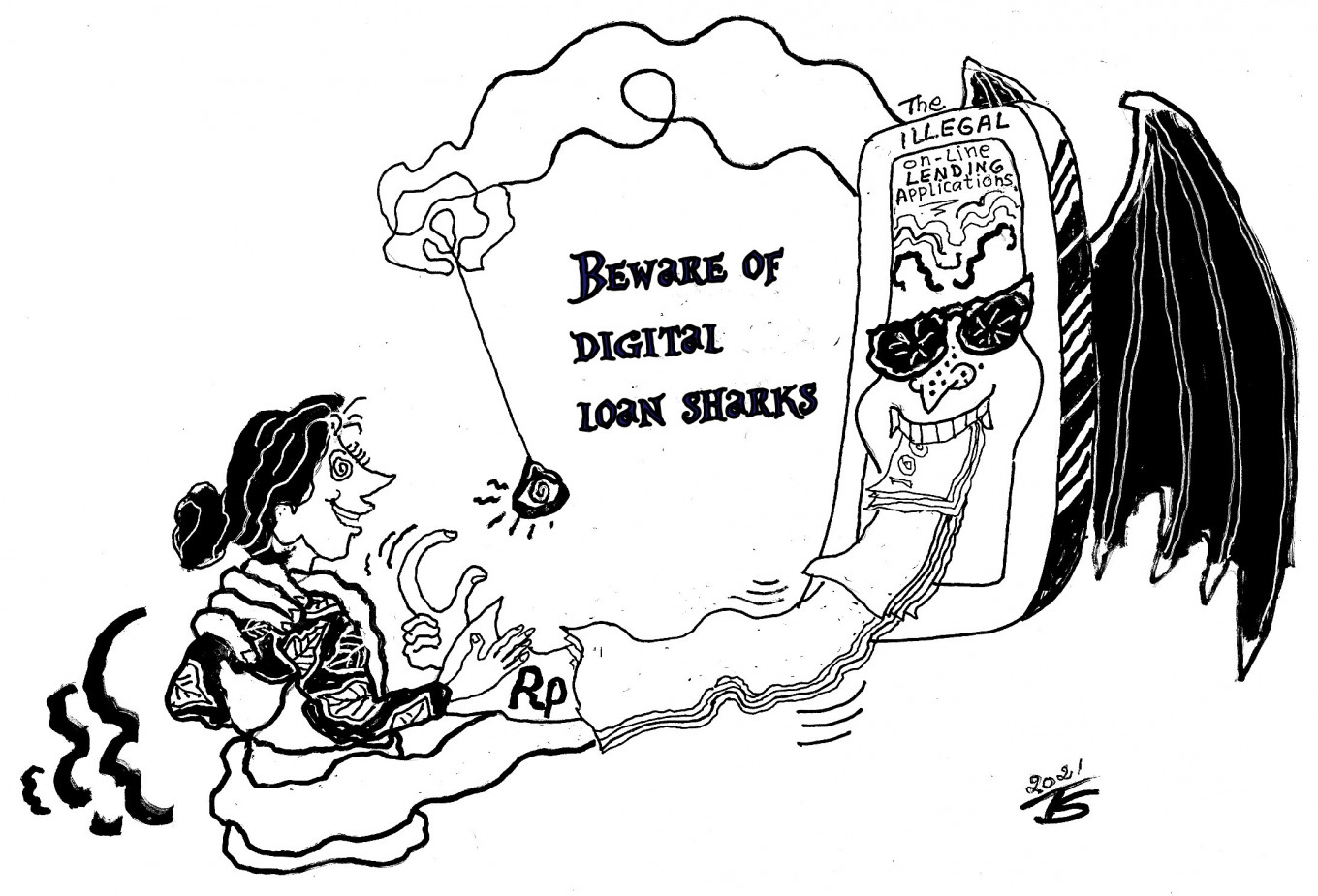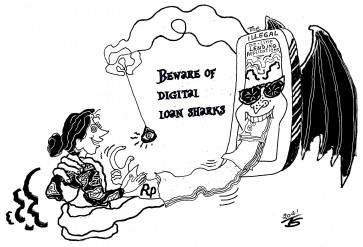Popular Reads
Top Results
Can't find what you're looking for?
View all search resultsPopular Reads
Top Results
Can't find what you're looking for?
View all search resultsWhat do fintechs have to do with social justice anyway?
Studies have demonstrated unchanged gender dynamics after two and a half decades of microfinance, with some even pointing to increased domestic violence correlated to women’s access to credit.
Change text size
Gift Premium Articles
to Anyone
B
esides taking over 150,000 lives, the COVID-19 pandemic has plunged the most vulnerable into deeper destitution. An estimated 2.6 million people have lost their jobs causing unemployment rates to reach a record high within the last decade.
The economic crisis brought upon by the virus is also reflected in the relegation of Indonesia’s classification by the World Bank to a mid-income country from its previous upper-middle income status. Curiously, the share of rich and ultra-rich citizens soared during the pandemic with the number of individuals having a net worth of US$1 million seeing a substantial 62 percent increase, pointing toward an exacerbation of income inequality in the nation.
Not coincidentally, large private investments into fintech startups, one of the fastest growing segments in the startup scene, did not wane but rather rushed in. In particular startups targeting micro, small and medium enterprises (MSMEs) have been met with fervor, attracting multimillion investments from the likes of billionaire investors such as Jeff Bezos and Peter Thiel along with some of the biggest international venture capital firms.
Digitalized interventions led by the fintech-philanthropy-development (FPD) complex purports to financially include the poor by offering financial services by selling “a vision that celebrates the possibilities for simultaneously achieving positive returns, philanthropy and human development”.
The timing of such investments makes sense. The financial strain placed on state budgets and citizens has proven to be a strong thesis for powerful investors to push the government to liberalize the financial services market, thereby making it competitive for a variety of financial institutions to enter a coveted space by betting on the economic growth of the burgeoning underclass.
Within such institutions that aim to render financial services more accessible to the poor, the term financial inclusion (FI) is rampantly used. For instance, The World Bank’s definition on its website claims that FI is a key enabler in reducing poverty and boosting prosperity.
When it comes to elucidating what exactly it entails, scholars have noted that FI’s scope is so broad that one would not be wrong to think that financial inclusion is nothing more than a feel-good term that evades specificity in its definition and consequently, opprobrium. After all, who would argue against reducing poverty and boosting prosperity?



















